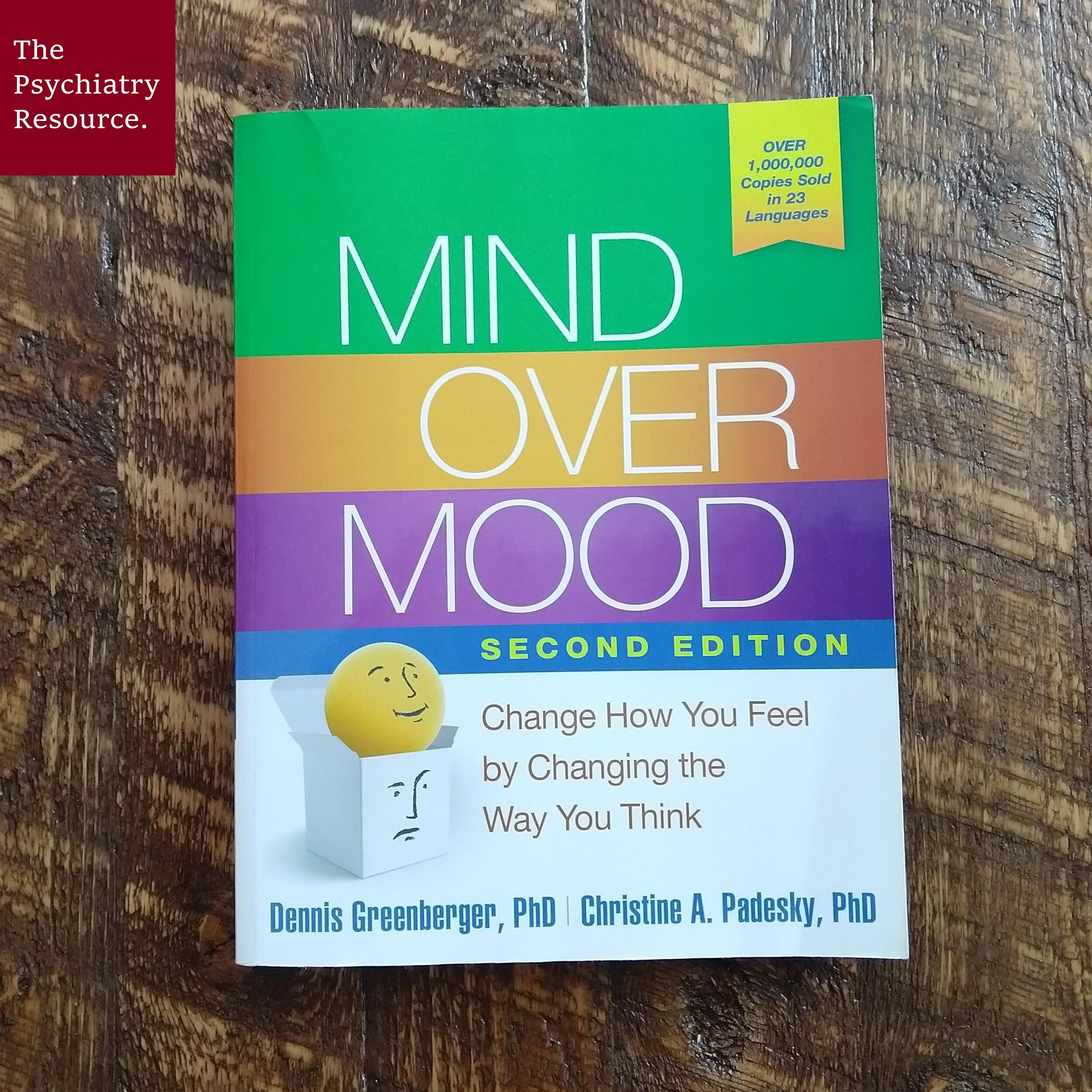Book Review – Mind Over Mood: Change How You Feel by Changing the Way You Think (2nd Edition)
Image: Mind Over Mood by Len Lantz (CC BY-NC-ND)
Synopsis: Len's Star Rating: 10 out of 10. The best self-help book on Cognitive Behavioral Therapy (CBT) for adults.
BY LEN LANTZ, MD / 4.14.2020; No. 14
Disclaimer: Yes, I am a physician, but I’m not your doctor and this article does not create a doctor-patient relationship. This article is for educational purposes and should not be seen as medical advice. You should consult with your physician before you rely on this information. This post also contains affiliate links. Please click this LINK for the full disclaimer.
Star Rating – 10 out of 10
Rating guide: 1 = horrible, 5 = average and 10 = wow
Authors
Dennis Greenberger and Christine Padesky
About the authors
Dr. Dennis Greenberger is a clinical psychologist and founder and director of the Anxiety and Depression Center in Newport Beach, California.
Dr. Christine Padesky is a clinical psychologist and co-founder of the Center for Cognitive Therapy in Huntington Beach, California, and co-creator of Strengths-Based CBT.
General description
Mind Over Mood: Change How You Feel by Changing the Way You Think is a self-help book that teaches people the basic elements of Cognitive Behavioral Theory (CBT) and how to benefit from the approach. CBT has been used to help many conditions, including anxiety, panic attacks, insomnia, depression, substance abuse, eating disorders and relationship problems. The book is filled with worksheets for practicing the skills used in CBT until they become second nature. Purchasers of the book are allowed to copy the worksheets for free. The explanations are clear, include examples showing different people using the skills and have helpful summaries at the end of each chapter.
Unique and most important aspects
The foreword of this book was written by Aaron T. Beck, the developer of Cognitive Therapy (CT), which preceded modern-day Cognitive Behavioral Therapy (CBT). Dr. Beck wrote, “Only rarely does a book come along that can truly change your life. Mind Over Mood is such a book.”
I have used Mind Over Mood in my clinical work with patients for 20 years and have found that the second edition is even more helpful than the first. It is a great book for adults and not such a great book for kids, as it is not written at their level, and as the clinical vignettes are about adults with adult problems. Mind Over Mood is an amazing resource that any adult could benefit from reading and practicing the exercises it contains. The worksheets in the book can be a helpful resource to work on with a therapist trained in CBT, especially because it can be hard for people to effectively complete a thought record on their own.
Important concepts from this book include:
Distinguishing between thoughts and emotions
Understanding the connection between thoughts, emotions and behavior
Identifying automatic, unbalanced thoughts
Learning how to complete a thought record
Practicing developing alternative, balanced thoughts
Testing and challenging underlying assumptions
Utilizing other helpful strategies:
Mindfulness
Acceptance
Forgiveness
Gratitude
Best quotes
“Mind Over Mood teaches you to identify and understand the connections among your thoughts, moods, behaviors, and physical reactions in everyday situations like this one, as well as during major events in your life. You will learn to think about yourself and situations in more helpful ways, and to change the thinking patterns and behaviors that keep you stuck in distressing moods and relationships. You will discover how to make changes in your life when your thoughts alert you to problems that need to be solved. In the end, these changes should help you feel happier, calmer, and more confident. In addition, the skills you learn using Mind Over Mood help you create and enjoy more positive relationships.”
“Repeated practice filling out Thought Records actually helps you learn to think more flexibly. After completing 20 – 40 thought records, many people report that they automatically begin to think alternative or balanced thoughts in distressing situations without writing out a Thought Record. When you reach this point, you will experience fewer and fewer situations as truly distressing, and you can spend your energy on solving what problems remain and on enjoying yourself in more situations.”
Who would enjoy this book?
Readers who want to learn skills for balancing their thoughts, having less extreme emotional reactions, lowering their anxiety and experiencing happier moods would likely enjoy Mind Over Mood.
Who would not enjoy this book?
Readers who quickly become overwhelmed and repeatedly tell themselves “I can’t” might find it hard to enjoy this book.
Conclusion
Mind Over Mood is the best self-help book on Cognitive Behavioral Therapy (CBT) for adults.

